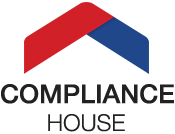Compliance House
Environmental Compliance
Compliance with, for example, climate and environmental requirements within the industrial sector is of great importance. Enterprises in industrial sectors are faced with the growing number and diversity of administrative and private regulations, such as the Environmental Management Act and the Nature Conservation Act and the associated General Administrative Measures (AMvBs) such as the Activities Decree and the Nature Conservation Decree. Various reasons can be found for this situation: more and more administrative regulations are being drawn up, professional organisations are drawing up their own regulations, and societal pressure is forcing the industry to come up with clear measures for environmental policy. Considering the past few years, society’s influence on business operations has continued to increase.
Curious about how your company is doing in the context of compliance and what Compliance House can do for you?
Please contact our specialists
Mutual dependency
The developments described lead to the fact that the traditional sustainability policy of companies, developed in the past with a strong view from the organisation towards the environment, is no longer sufficient. Increasingly complex environmental regulations must be structurally embedded in the organisation. The sustainability policy should not focus on the difference, but on the mutual dependency between the company and its environment. This is achievable by thorough analysis and policy formulation. This policy helps to meet compliance obligations structurally and proactively. In addition, it is important to convert the results of the analysis into what the actual added value and unique value of a company is.

This analysis provides a good insight into:
- The current and future expectations of the environment;
- The associated risks;
- The compliance obligations and where they manifest themselves within the company;
- How to meet these obligations.
Complying with the standard within the industrial sector therefore requires a thorough work process that must be secured and tested. It ensures control, trust and transparent action. It is the guideline for the sustainable organisation of the business process. The realization of the compliance obligations can be clarified through various developments and laws.
Compliance Officer
Previously, these various compliance obligations could be handled quite easily by the QHSE employee. On the one hand, this employee is responsible for applying for the necessary permits and, on the other hand, for implementing the requirements of these permits in the organisation. Environmental management systems complement administrative requirements. Due to the increasing amount, diversity and complexity of administrative and private regulations, it appears in practice that the QHSE employee needs more and more support and we see an increase of fully-fledged compliance specialists, such as a Compliance Officer. A Compliance Officer has a broad knowledge of the laws applicable to the company and the industry as a whole and helps ensure that the company complies with the rules that apply to them, usually by reducing the risk of violating those rules.
Compliance
Effective compliance brings many benefits to a company such as fewer legal issues, better business operations, external relations, maintaining and advancing a good reputation, and greater retention of staff. The legal nature of many environmental performances requires expertise of the legal playing field and supervision of their implementation prior to production. Guidance by a compliance specialist is recommended.
Would you like to know whether your company complies with current legislation and regulations regarding the environment, working conditions and spatial planning? The specialists at Compliance House ensure that you are compliant with all laws and regulations in the field of environmental law. The Compliance House team takes stock of which regulations apply to your company’s situation. When these are clear, our specialist will support your company with the implementation and compliance with these laws and regulations. Thanks to possible periodic guidance, you can be sure that your company will continue to comply with the laws and regulations that apply to you.
Curious about how your company is doing in the context of compliance and what Compliance House can do for you?
Please contact our specialists
Manage Consent
To provide the best experiences, we use technologies like cookies to store and/or access device information. Consenting to these technologies will allow us to process data such as browsing behavior or unique IDs on this site. Not consenting or withdrawing consent, may adversely affect certain features and functions.
Functional Altijd actief
The technical storage or access is strictly necessary for the legitimate purpose of enabling the use of a specific service explicitly requested by the subscriber or user, or for the sole purpose of carrying out the transmission of a communication over an electronic communications network.
Preferences
The technical storage or access is necessary for the legitimate purpose of storing preferences that are not requested by the subscriber or user.
Statistics
The technical storage or access that is used exclusively for statistical purposes.
The technical storage or access that is used exclusively for anonymous statistical purposes. Without a subpoena, voluntary compliance on the part of your Internet Service Provider, or additional records from a third party, information stored or retrieved for this purpose alone cannot usually be used to identify you.
Marketing
The technical storage or access is required to create user profiles to send advertising, or to track the user on a website or across several websites for similar marketing purposes.
